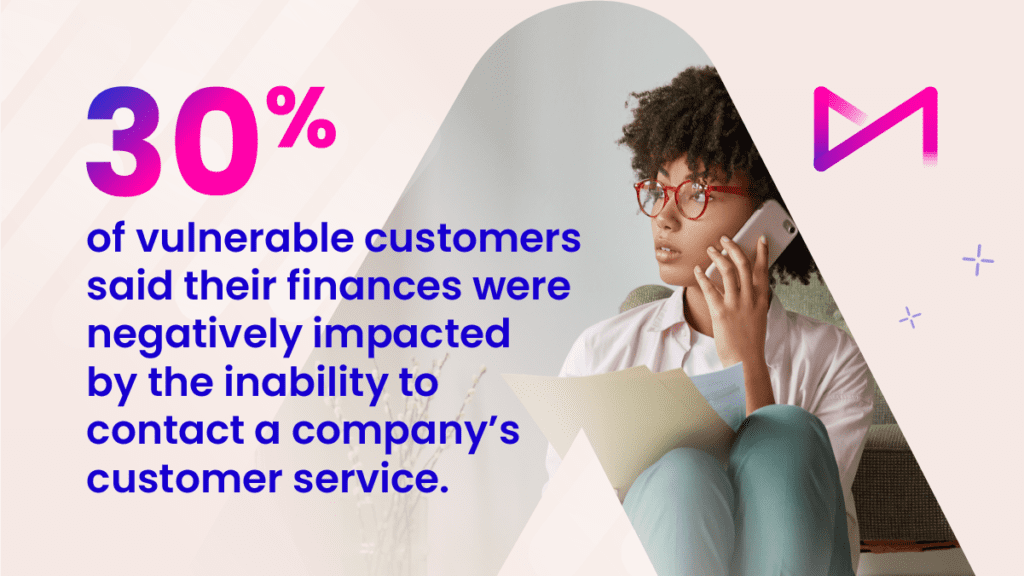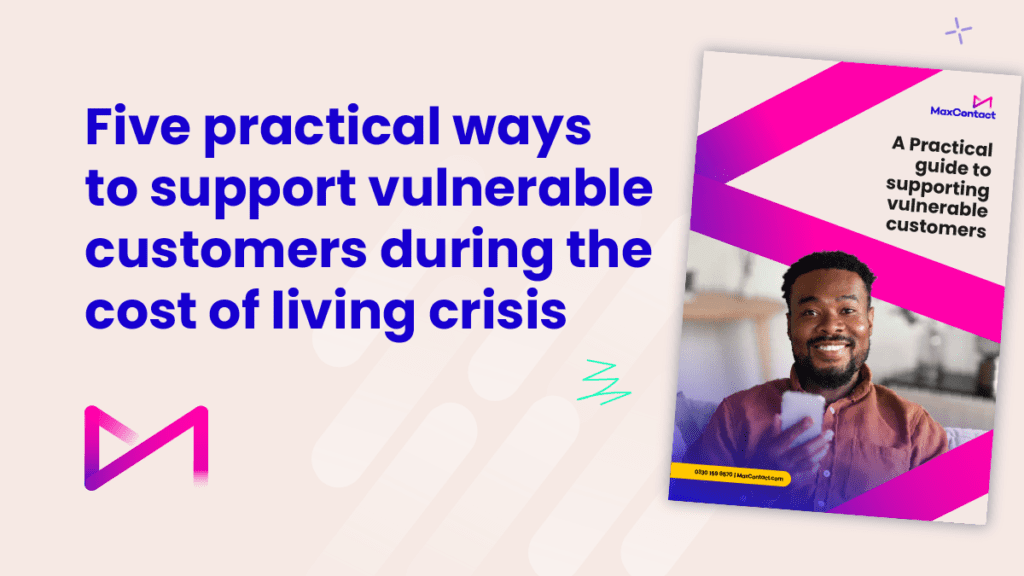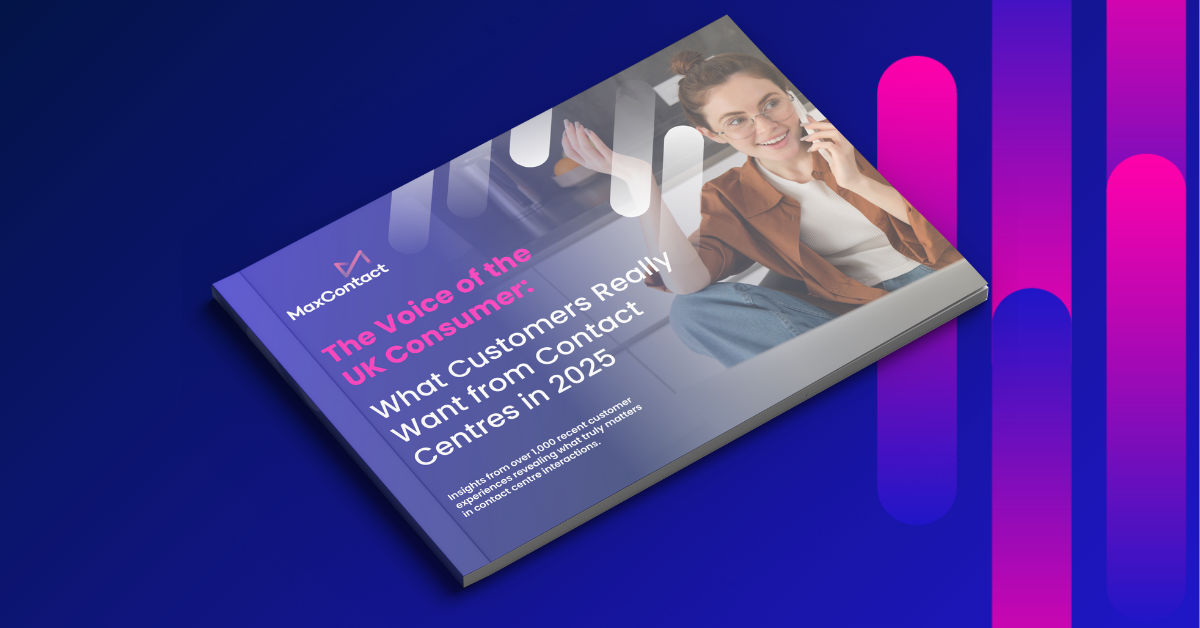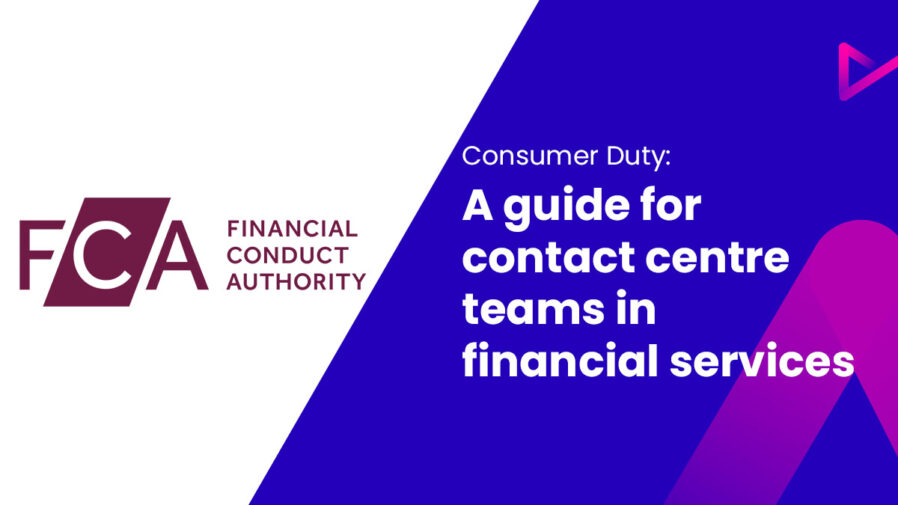According to the Financial Conduct Authority (FCA), 27.7 million adults in the UK fall under their definition of a vulnerable customer. This includes having poor health, experiencing negative life events, low financial resilience, or having low decision-making capabilities. This number is predicted to rise even further as the cost-of-living crisis impacts peoples’ finances and mental health.
However, many companies are unprepared to deliver the specific customer service support vulnerable customers now need. MaxContact interviewed 1,000 vulnerable customers who had recently interacted with a contact centre and found:
- • 48% had struggled to find a phone number to contact a company in the past year
- • When they had managed to reach a company’s customer services, 51% felt they were treated unfairly, and their needs were not accommodated
- • The biggest problems revealed by vulnerable customers include:
- ∙ Being passed between different staff and having to re-explain the problem several times (51%)
- ∙ Having to navigate too many phone menus (IVR) to reach the right person e.g., press 1 for this, press 2 for this (45%)
- ∙ Feeling like the person they were talking to was trying to get them off the phone quickly (30%)

As a result, 52% said they had to abandon solving a problem because it was just too difficult, with 57% saying this had a negative impact on their mental or financial wellbeing.
The main support vulnerable customers say they want from companies is:
- • Having their problem solved by one person rather than being passed between multiple advisors (46%)
- • Being able to reach a real person quickly to explain their problem (39%)
- • Being given enough time to properly explain and address their situation (31%)
The research also shows that vulnerable customers would like customer support services to show more empathy (23%) and 20% want customer service advisors to communicate with less jargon.
Helen Lord, CEO of the Vulnerability Registration Service, says, “Our own recent research underlines MaxContact’s findings. The cost-of-living crisis will undoubtedly place many customers in incredibly difficult circumstances. So, it’s essential that companies identify vulnerable customers early to provide them with the support they need – not only to meet regulators’ expectations but from a corporate responsibility perspective too.
It’s imperative the organisations can adapt their customer journeys appropriately, taking into account not just financial difficulties, but also mental or physical health and life events such as a relationship breakdown or bereavement, coercion or addiction.”
Gareth Morgan, H&T Group’s Operations and Communications Manager, and MaxContact client, says, “Our customer service centre provides instant, direct contact to a waiting agent. Every team member at H&T is trained to identify, explore and support vulnerable and potentially vulnerable customers.”
“It is important to us that vulnerable or potentially vulnerable customers have their account handled in the best way possible at the first time of asking.
“We prioritise call quality and customer service and do not impose limits on call times, wrap times or account updates. Therefore, H&T agents have the ability to focus on providing the best service and outcome possible for the customer. By providing time to ensure detailed and accurate notes can be recorded, we eliminate the customer needing to repeat or re-explain their circumstances in the future.”
To help customers better support the larger numbers of vulnerable customers who will be contacting them, MaxContact has created a practical checklist of measures for contact centres to consider implementing. Download your copy here to learn five practical ways to support vulnerable customers.

Ben Booth, MaxContact CEO, says, “It’s the perfect storm for customer service teams. Customer complaints are at their highest point ever and there are more complex situations and vulnerable customers to support than ever before. We know that to make a real difference with vulnerable customers, as well as staying compliant with the FCA’s new consumer duty guidance, leaders need practical, easy-to-follow advice which they can put into action at their own organisations right away.”
To see how MaxContact’s customer engagement platform can help you support vulnerable customers more effectively, get in touch.





